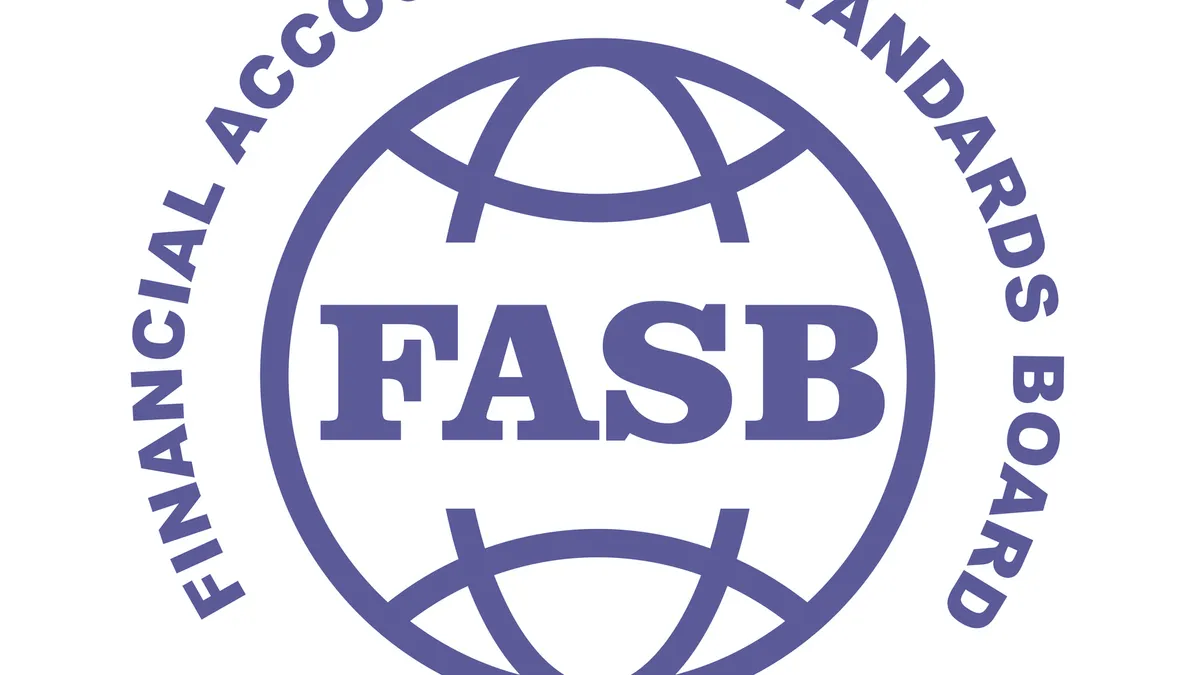Dive Brief:
- The Financial Accounting Standards Board published updated guidance related to how to account for derivatives, hedging and revenue from contracts that clarifies the scope of the existing standards in the Topics 815 and 606, according to a Monday release from the U.S. accounting standards setter.
- Under exceptions outlined in the update, the new derivative accounting guidance will not apply to certain financial instruments related to environmental, social and governance arrangements, as well as certain R&D and litigation funding contracts, a FASB spokesperson said.
- The publication finalizes the update of the standards underpinning generally accepted accounting principles.The amendment will be effective for annual reporting periods beginning after Dec. 15, 2026 and interim or quarterly periods within that time, according to the accounting standards update.
Dive Insight:
The change to derivatives accounting guidance marks the seventh standards update this year issued by FASB, the board’s spokesperson said. Other subjects with updates on the board’s prioritized technical agenda include measurement of paid-in-kind dividends on equity classified preferred stock and a plan for targeted improvements to statement of cash flows.
The publication of the derivatives update comes a little over two years after the board voted in 2023 to add a project aimed at refining what constitutes a derivative to its high-priority agenda. During a meeting at that time, FASB member Frederick Cannon said that the current guidance wasn’t intuitive and led many assets to be classified as derivatives that many capital markets players didn’t consider to be so. Cannon at that time said he supported the move to refine the guidance to get away from “playing whack-a-mole with things that pop up as derivatives that aren’t,” CFO Dive previously reported.
In April, FASB Chair Richard Jones said the board was fighting so-called “scope creep,” in which some companies were treating too many items as derivatives, obscuring the true economic picture of certain financial situations, CFO Dive previously reported.
One of the complexities that results in broad application of the current derivative standards is that part of the criteria includes financial arrangements that have an underlying variable that can cause the fair value of the arrangement to fluctuate. For instance, litigation funding has a different value if the case that underlies the arrangement is won or lost.














